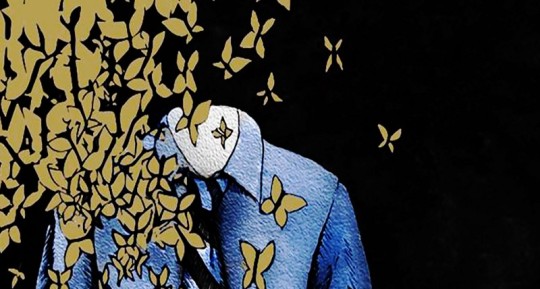
A Review of James Brubaker’s Pilot Season by Michael Peck
Number of pilot episodes filmed for broadcast and cable networks from January, 2012—April, 2013: 186. Percentage that will not be renewed for a second season: 65. Approximate cost of producing a pilot episode: $5,000,000. Reality shows in 2000: 4. Reality shows in 2012: 320. Rate of suicide among reality-show contestants: 3 times the national average. Most popular locales for filming reality-shows: Louisiana and Alaska.
At the beginning of David Lynch’s Inland Empire, we’re treated to a surreal sitcom featuring people-size rabbits going through the motions of people-like domesticities. None of them speak, but random bits of canned-laughter let us know that something funny is happening, as when a third rabbit (a butt-of-the-joke type, no doubt) enters. The effect is uncannily wholesome and very troubling, like some kind of Edward Hopper tableau put in motion by the makers of Donnie Darko. Automata-like sitcom-tropes are defamiliarized into something truly unnerving in Lynch’s vision. In this world, a watcher’s fascination is as preprogrammed as that of the onscreen portrayals.
Although none of the pitches in James Brubaker’s Pilot Season will ever be aired, Lynch’s sequence would probably be closest to the book’s deep-seated unease. Constructed as a series of nineteen unconnected pilot episodes for reality-shows and comedies, Pilot Season is every bit as troubling as Lynch’s commentary on entertainment. It’s a spot-on satire of contemporary archetypes.
“Pilot Season” opens the book, a show about “…a beleaguered television network executive [who] fights to keep his job and earn the respect of his family.” Flowing from his desperation, the pitches that follow are sad and uproarious. The first vignette, “A Father’s Love”, is a bitter “elimination-style” game in which men and women compete for the love of a father-figure they’ve never met. Among the many challenges are
…making things out of wood for and with the Father, not telling anyone when you see the Father ogle waitresses, cleaning the Father’s Civil War memorabilia … and helping the Father when he comes home drunk and throws up on the porch.
At the conclusion, the Father kicks someone off by declaring, “I’m very disappointed in you.”
Brubaker channels the all-too-human and wonky parallel universe of George Saunders (q.v. “Clanking Replicator”: a self-replicating android that has issues self-replicating himself a partner) and the impeccably deadpan tone of Lydia Davis. Every now and then the book tips into Jack Handey territory. “Buddies”, a sitcom about The Fat One and The Pretty One, covers the essence of all sitcom...
You have reached your article limit
Sign up for a digital subscription and continue reading all new issues, plus our entire archives, for just $1.50/month.
Already a subscriber? Sign in




